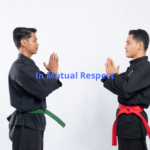Haftarah: Vayeitzei: Possibilities
Hosea 12:13 – 14:3 Is it Rosh Hashana again? The prophetic selection may not begin on the theme of repentance, but it certainly ends with it. We read the exact text we read on Shabbat Shuvah.
The Haftarah begins as we expect from Hosea. He is critical of Ephraim, the tribe that led the Northern Kingdom of the Ten Tribes. The prophet criticized their corruption, their dishonesty in their dealings with the Southern Kingdom, the evil of their interaction with other people, and their refusal to acknowledge how they benefited from God.
How does a prophet share his vision with the people he must inspire? How could he get them to listen to him? I imagine that his harsh words would fall on deaf ears, that the people would not necessarily be so interested in his poetic words. Unless, we imagine that Hosea chose to not speak to his generation about them, but to simply express his feelings about living amongst such a corrupt nation.
The prophet introduces his personal journal by drawing parallels with Jacob: “And Jacob escaped to the fields of Aram, and Israel worked for a woman, and for that woman he guarded (Laban’s) sheep.” The verse begins with Jacob and ends with Israel. Jacob changes. He matured from Jacob into Israel. Yet, he had not grown into being Israel when he worked to be able to marry Rachel, when he guarded Laban’s sheep. Hosea was sending a subtle, yet powerful message. The minute Jacob agreed to work for Laban so that he could marry Rachel; he began the process of growing into Israel. Hosea did not measure change by the end result. As far as Hosea was concerned, the moment Jacob agreed to work for the right to marry Rachel, he was on the path to his growth into Israel. Jacob would go through many stages before officially named Israel. It would be 22 years before God names him Israel. As far as Hosea was concerned, Jacob began to grow into Israel the moment he agreed to work for Rachel’s hand.
Jacob looked at Rachel for the first time and saw his destiny. He was able to visualize himself as deserving to marry such a woman. He knew that in order to win her hand he, who came to Aram to escape the clutches of Esau, would now have to deal with the corruption of Aram, and Laban, who personified their dishonesty. Jacob looked at Rachel and understood that in order to become the man who would merit such a wife, he would have to shoulder the burden of fighting the Labans of the world. He assumed the challenge by virtue of a greater vision of himself; a vision personified by Rachel. He could truly say, “The woman made me do it.” Jacob was fortified and empowered by his vision of himself as Israel. His belief in whom he could, and would, become empowered Jacob to assume any challenge and to change.
Hosea lived in a kingdom that matched the corruption of Laban and Aram. He cried out against their dishonesty and evil. The prophet was not crying out to his people with these words; he was declaring his frustration and what empowered him to continue his battle. Hosea looked to Jacob and understood that a person with a greater vision for himself, will be able to stand up to the Esaus, the Labans and the Arams of the world.
Hosea began to understand the Teshuva process in an entirely new light. Teshuva, or repentance, is only possible for those who can change. Change is only possible for those who believe they can change. Hosea taught that Teshuva begins with possibility. The seed of repentance is the belief that I can become a greater me.
The Hosea who now understood Teshuva as a celebration of possibilities could speak to his generation with new inspiration and hope. Hosea looked all the way back in history to Jacob and learned how to look forward. The prophet is sharing his new insight with his generation and ours; The first and most important step towards change is to believe in whom and what we can become.




